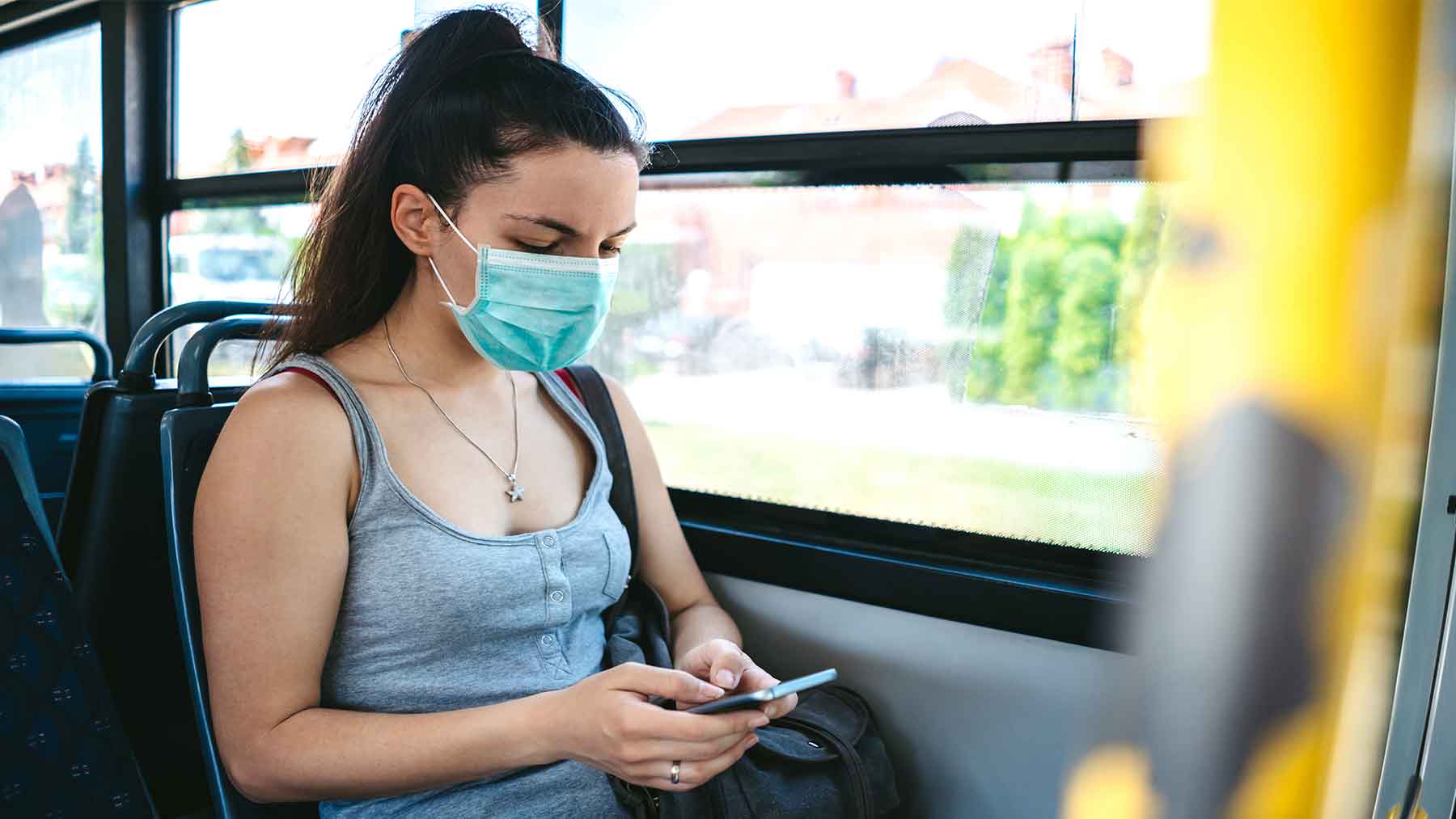Should I be wearing a surgical mask?

Editor’s note: As what we know about COVID-19 evolves, so could the information contained in this story. Find our most recent COVID-19 blog posts here, and learn the latest in COVID-19 prevention at the Centers for Disease Control and Prevention.
Update 4/6/2020: Recent studies suggest a significant number of people with COVID-19 don’t have any symptoms and those who develop symptoms spread germs before the symptoms appear. In light of this evidence, the Centers for Disease Control and Prevention (CDC) is recommending people wear cloth masks in addition to practicing social distancing. (Here are the CDC instructions on how to make and wear a cloth mask: https://www.cdc.gov/coronavirus/2019-ncov/prevent-getting-sick/diy-cloth-face-coverings.html)
As conversation around infectious disease increases, so does the scramble for protection. The actual effectiveness of surgical masks in people’s day-to-day activities has long been debated. Wearing surgical masks is sometimes a reasonable precaution, but recommendations from public health experts can change depending on the severity of threat in a geographic area.
The fear surrounding the recent coronavirus outbreak is challenging to the ongoing public health conversation. (For the latest coronavirus updates from the Ohio State Wexner Medical Center, visit http://go.osu.edu/coronavirus.)
As COVID-19 spreads, Americans are dashing to drug stores and online retailers to buy surgical masks, causing a major shortage.
The use of surgical masks in healthy people can actually do more harm than good — there’s a genuine need for surgical masks within crisis areas, and the run on surgical masks outside of areas where the virus is rapidly spreading makes it more difficult to meet demands.
According to the Centers for Disease Control and Prevention (CDC), a typical surgical mask doesn't provide the wearer with a reliable level of protection from inhaling smaller airborne particles, and it's not considered respiratory protection.
So who should use surgical masks? "The role of facemasks is for patient source control, to prevent contamination of the surrounding area when a person coughs or sneezes," the CDC reports. "Patients with confirmed or suspected COVID-19 should wear a facemask until they are isolated in a hospital or at home. The patient does not need to wear a facemask while isolated."
In other words, they're worth wearing if you're already showing symptoms or have been diagnosed with an illness and you want to avoid getting others sick. But regular surgical masks aren't very effective at keeping healthy people from inhaling small particles (because they don't provide a perfect seal on the face).
Another type of mask, an N95 respirator, provides a better seal and is about 95% effective at filtering out both large and small particles. These are the masks that are sorely needed among health care providers during an outbreak.
"A surgical N95 (also referred as a medical respirator) is recommended only for use by health care personnel who need protection from both airborne and fluid hazards (e.g., splashes, sprays)," the CDC reports. "These respirators are not used or needed outside of health care settings. In times of shortage, only health care personnel who are working in a sterile field or who may be exposed to high velocity splashes, sprays or splatters of blood or body fluids should wear these respirators, such as in operative or procedural settings."
Protecting the people caring for patients is vital to preventing the spread of coronavirus.
The best thing you can do to prevent getting sick from coronavirus or the flu (which remains a threat in the U.S.) is to get your annual influenza vaccine, observe appropriate social distancing guidance and practice great hand hygiene by frequently washing your hands with soap and water. Avoid touching your face, especially the "T-zone" area around your eyes, nose and mouth. Try to stay away from people exhibiting upper respiratory infection symptoms, such as runny nose, cough and breathing difficulties. If you’re feeling any active symptoms, especially a fever, stay home and don’t infect others.
Iahn Gonsenhauser is the chief quality and patient safety officer at The Ohio State University Wexner Medical Center.




